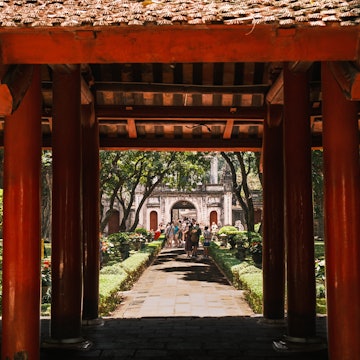
Travel with purpose: how to make a difference with social enterprises

detail of guatemalan mayan woman weaving on loom
You want a fun and local experience while you travel. But you also want to give back, to do something to benefit the communities you visit. Is it possible to achieve both at the same time?
There’s one easy way to connect these two goals: social enterprise in travel.

What are social enterprises?
Social enterprises resemble NGOs (non-governmental organisations) in terms of having a social or environmental mission, but they have a market-driven approach and make money. However, they reinvest the lion’s share or all of that money – their profits – back into the community. Many also train and employ disadvantaged or marginalised populations, thereby incorporating the mission directly into operations.
From tours and experiences to restaurants and shops, social enterprises allow you to have a deeper travel experience and connection to a place, and feel good knowing your money is being put back into the community. Here are some examples, plus tips on finding them in your next travel destination.

Join cultural experiences and tours
Book a tour or experience with a social enterprise and you’re likely to get a unique experience you won’t find anywhere else. The prevailing theme of social enterprise-driven experiences: connection with and preservation of local culture and community. And that includes potatoes.
Yes, potatoes.
At Parque de la Papa, a new G Adventures and Planeterra Foundation partner in Peru, we faced 500 species of potatoes of every colour, shape and texture, and a local farmer-advocate telling the story of their importance to the community and their food security. Tour fees fund local farmers and their work, including the preservation of 3000 varieties of indigenous potato species. We ate potatoes that tasted like no other potatoes we’ve ever known. Mind-blowing potatoes. Turns out the humble spud can form the basis of an engaging travel experience. Who knew?

In southern India, The Blue Yonder has created a Musical Trail to bring together travellers with musicians and artisans in villages along the River Nila in Kerala state. Instead of just observing a traditional performance, travellers can get hands-on, participate and even create music and art together.
Taking part in tours such as these not only delivers economic benefit to those involved – it also fuels the resurrection of once-dying local traditions and encourages a new generation of local musicians and artisans. Over 850 students now study the traditional percussion music of the River Nila thanks to a fellowship funded by reinvestment of the social enterprise’s profits.

Shop for handicrafts and souvenirs
Social enterprise in shopping is on the rise, too. These handicraft shops often help shoppers accomplish two objectives at once: to find high-quality local crafts and a memorable story to go with them.
At Altyn Oimok (Golden Thimble) in Bokonbaevo on the south shore of Lake Issyk-Köl in Kyrgyzstan, founder Janyl Bayisheva explains that during Soviet times, traditional Kyrgyz handicrafts and designs were unpopular, even discouraged. She was undeterred, and sought out elders to learn the techniques. Today, her mission is to use traditional Kyrgyz handicrafts as a way to provide economic opportunities to rural women and to keep this cultural knowledge alive for future generations.
The quality and design of the handmade crafts is incredibly high, even earning a Unesco Seal of Excellence for Handicrafts. Profits from the sales of these handicrafts and hands-on workshops go to train more young, disadvantaged women and provide social support. That’s certainly a souvenir with a story.

Eat at community restaurants and cafes
Food is one of the best ways to connect to a place. Social enterprise restaurants and cafes take this a step further, since their business models deliver an added dimension of social impact in local communities.
At Parwa Community Restaurant in Peru’s Sacred Valley, profits from a restaurant serving travellers en route to Machu Picchu have funded education grants, clean water capture, and improved toilet sanitation. In this village of 65 families, investments have positively impacted everyone in the community.
Friends-International Restaurants and Cafes operate in Cambodia, Laos, Thailand and Ethiopia. Their staff, from chefs to waiting staff, are drawn from a pool of disadvantaged youth trained by the organisation in hospitality and life skills. By applying those newly acquired skills in their social enterprise restaurants, students acquire professional experience that they can then use to obtain full-time jobs.
The upshot: while enjoying a tasty meal, you can also contribute to the professional development of the staff serving you. As a bonus, staff in social enterprise restaurant environments are often interested in interacting and sharing their stories.

How to incorporate social enterprises on your next trip
Social enterprises are growing in popularity around the world, but they may still be difficult to find. Here are a few tips on where to find them and how to incorporate them into your next trip.
Research online
In your favourite search engine, combine the search term ‘social enterprise’, the type of service you are looking for (e.g. walking tour, guest house, restaurant), and the destination you’re visiting. Grassroots Volunteering also has a database with over 150 social enterprises around the world. Don’t forget to pair this strategy with asking your network on social media. You might be surprised by the results and conversation.
Choose a tour operator with a focus on social enterprises
Choose a tour operator that incorporates social enterprises into their itineraries and operations. For example, G Adventures offers over 240 tours that feature social enterprise experiences. Visit.org vets local tour providers to ensure that a portion or all of the profits from tours are reinvested in the community. Whichever tour operator you choose, ask how their company works with local communities in the delivery of their tours.
Check out adventure tours for every traveller from our trusted partners.
https://shop.lonelyplanet.com/products/volunteer-a-travellers-guide-4













